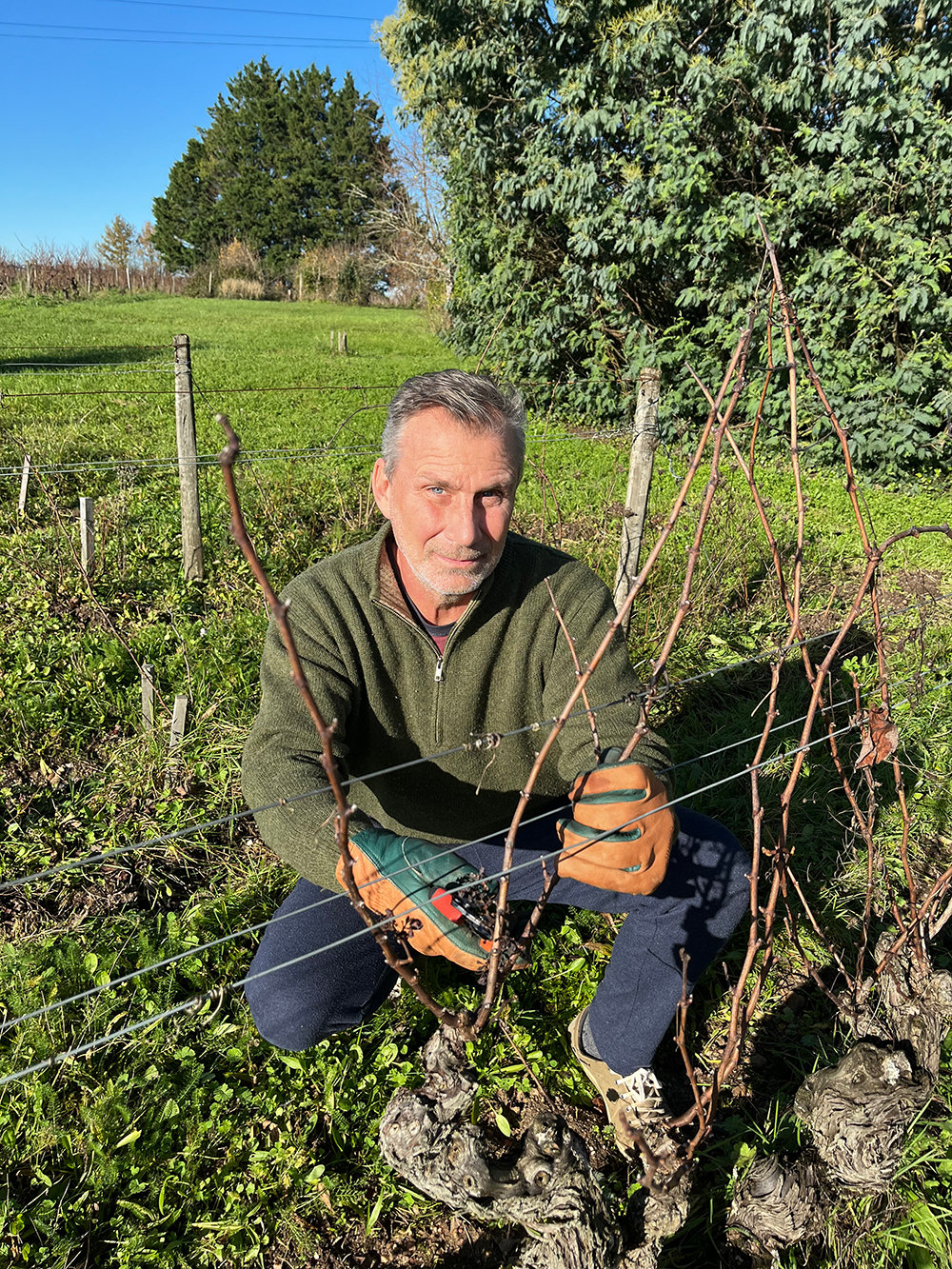
You can learn a lot about a winemaker by tasting his wine. In The Accidental Connoisseur, Lawrence Osborne wrote of one wine that smelt of ‘simmering insanity’, reflecting the angry Italian who made it. I didn’t have quite such an extreme reaction to Peter Hahn’s Clos de la Meslerie Vouvray, but I did deduce that he was idealistic, determined, romantic, perhaps a little dogmatic, and given to certain esoteric beliefs.
Having now read his book Angels in the Cellar, I can say that my deductions were mostly right. Hahn is an American whose career as an investment banker came to an end when he suffered a breakdown in the back of a London taxi. He decided to give up the rat race and bought a neglected Vouvray domaine, where he moved with his family to live la belle vie.
So far, so conventional. In some parts of France you can’t throw a grape without hitting a burnout Anglophone tycoon turned gentleman farmer. Hahn, however, decided to do things the hard way, from pruning the vines to making the wine as much as possible by hand. He and his French wife Juliette sometimes take this to extremes: rather than a modern wine press, they use a century-old wood and cast iron one that needs painstaking loading and cleaning out with pitchforks. Here’s a man who likes the ancient ways: even when hosting a raclette party, he spurns the modern electric cheese heater for a candle-powered device.
The book takes the form of an almanac outlining the seasonal work at the domaine, starting in winter and finishing with the vendage in the autumn. Be warned: there’s an awful lot of pruning in the first part, which even viticulture students might find a bit much. But the book has a slow charm that crept up on me. As Hahn is reviving the vineyard, coaxing it back to life, he is doing the same thing for himself. I was reminded of Robert Pirsig’s Zen and the Art of Motorcycle Maintenance, with a damaged man finding comfort and meaning in performing routine jobs well.
Hahn takes much pleasure in the changing of the seasons. There are some vivid moments, such as when he sees a hare fight off a bird of prey which was after its baby: ‘At almost the very second the bird hit its prey, the hare’s mother appeared and jumped on the raptor, punching it with her forelegs.’ Sadly, she was too late to save the leveret. I was disappointed, however, that beyond some references to ‘plants crying’, there’s very little esoterica. Hahn might be a natural winemaker but doesn’t seem to be a follower of the mystical teachings of Rudolf Steiner – so I got that one wrong. But he is definitely a romantic. He writes of his wife:
Every spring, without fail, like the cherry trees and daffodils, Juliette blossoms. I watch her from a distance, see the lightness in her movement… Every year at this time, even as we advance through the years, she seems to me to be more prepossessing and vibrant than ever.
As well as sketches of Juliette and their children, there are descriptions of local people who offer a helping hand, such as the formal, elderly Monsieur Boisnon. These are deftly done, never spilling over into eccentric Frenchman territory. Nobody is caricatured for comic effect. The climax of the book, if that’s not too dramatic a term, is the harvest, which is picked by a group of refugees from Ukraine. The ancient press breaks down and while one of the Ukrainians finds the necessary part, unfortunately ‘it’s in Smolensk’.
These sort of ‘rich man finds peace doing peasant work’ books can be tricky. Sometimes Hahn overdoes the humblebrag, repeating praise for his wines and then saying how it doesn’t interest him. There’s also a paradox at the heart of his enviable lifestyle: it’s the modern connected world of commerce and technology that allows him to do what he does and creates a wealthy middle class willing to pay £40 for a bottle of wine. Yet it is this same economy that destroys rural life with the lure of tech jobs in Paris or London.
But largely he gets away with it because his sincerity is never in doubt. ‘I may not have been the happiest man alive but I felt like I was pretty close,’ he writes at one point. It’s hard not to take pleasure in his quiet contentment and, if you come across a bottle, his wine.







Comments